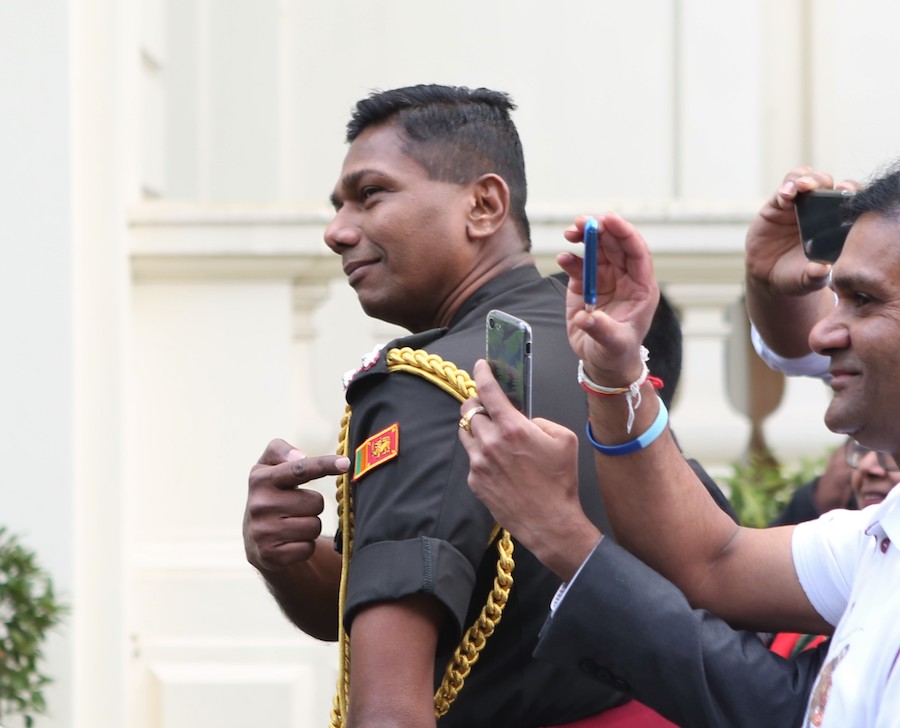The Brigadier Intervention

By Chamindra Weerawardhana –February 8, 2018

 The conduct of [now suspended] Brigadier Priyanka Fernando, Defence Attaché of the High Commission of the Democratic Socialist Republic of Sri Lanka to the United Kingdom has already made viral headlines not only in the UK and Sri Lanka, but also across the world. The Brigadier’s‘throat-slitting’ intervention, intended at Tamil nationalist/secessionist protesters who were protesting on the National Day of Sri Lanka, has resulted in many a debate on social media and beyond. While what happened was unfortunate, this incident sheds light upon crucial issues of relevance to post-war Sri Lanka, which are equally important to the worldwide Sri Lankan community. This article is intended at making sense, albeit parsimoniously, of the Brigadier’s intervention and the wider issues it sheds light upon.
The conduct of [now suspended] Brigadier Priyanka Fernando, Defence Attaché of the High Commission of the Democratic Socialist Republic of Sri Lanka to the United Kingdom has already made viral headlines not only in the UK and Sri Lanka, but also across the world. The Brigadier’s‘throat-slitting’ intervention, intended at Tamil nationalist/secessionist protesters who were protesting on the National Day of Sri Lanka, has resulted in many a debate on social media and beyond. While what happened was unfortunate, this incident sheds light upon crucial issues of relevance to post-war Sri Lanka, which are equally important to the worldwide Sri Lankan community. This article is intended at making sense, albeit parsimoniously, of the Brigadier’s intervention and the wider issues it sheds light upon.
Context and Pretext
This incident took place in London, once the capital of the British Empire, a monstrous structure built on murder, destruction, confiscation of land, waterways and bodies. The imperial project was one of creating division where there was none, aggravating division where there was some, and in ensuring a regular flow of profit and plenty to the coloniser’s hands. This historical backdrop needs to be constantly kept in mind when reflecting upon what happened at the doorstep of Sri Lanka House, formerly
Ceylon House, at Hyde Park Gardens on National Day 2018. In the present-day context, the stealth of the imperial prowess continues to be felt in many places across the ex-Empire, through neocolonial and neoliberal politics and diplomacy. Why, for instance, should a British company be given the multi-million-pound contract to print biometric Sri Lankan passports? This decision was taken at the highest levels of power in Colombo, at the behest and persuasion of British authorities. Despite reports from within relevant government departments in Colombo that an upgrade to state-owned facilities would suffice to print biometric passports, [at a cost much lesser than that that incurred by the deal with the British company], Sri Lanka’s top leaders decided to look away and do as they were asked and pressured. By the British. The point I wish to make here is that when it is of advantage to British interests, Britain continues to wield tremendous power over Sri Lanka, to the level of influencing cabinet decisions and more.
